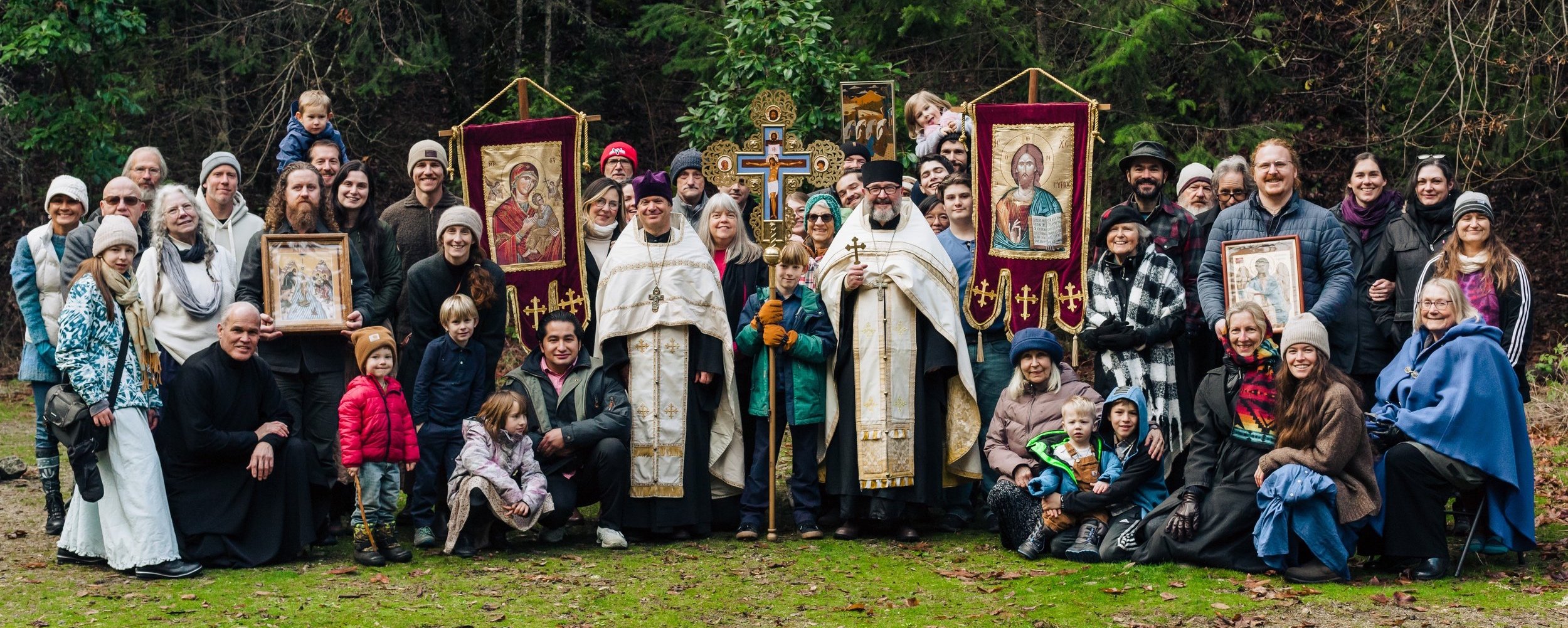
Blessed is he that comes in the name of the Lord
Welcome to Archangel Gabriel, an Orthodox Christian community committed to sharing the Gospel of Jesus Christ throughout southern Oregon. Our parish is first and foremost a place where people come to worship the living God and receive His life giving Grace through the Sacraments of the Church. We are a thriving faith community with people of all ages and backgrounds who are working out their salvation together and striving to live in accordance with the commandments of Our Lord and Savior Jesus Christ.
Located near Ashland, OR, our community extends from Mount Shasta to Grants Pass and even Williams to Klamath Falls.
Many of our congregants journeyed to the Orthodox Church from other Christian faith traditions and denominations and some non-Christian religious and spiritual traditions. Whether you are “on a journey” or just wanting to visit a local Orthodox parish, you welcome at Archangel Gabriel. We are always honored to have visitors join us for prayer and worship.
If you have any questions before your first visit, please do not hesitate to contact us.
Archangel Gabriel is a parish in the Diocese of the West of the Orthodox Church in America.
Schedule of Services
February 1st through February 8th - 2026
Sunday 5.00 pm - Vigil for the Meeting of the Lord
Monday 8.00 am - Divine Liturgy for the Meeting of the Lord with fellowship afterwards
Tuesday 10.00 am - Akathist to the Mother of God with fellowship afterwards
Wednesday 5.30 pm - Family Game Night
Saturday 6.00 pm - Great Vespers
Sunday 9.00 am - Divine Liturgy with fellowship afterwards
Weekly Homilies:
What is Orthodox Christianity?
Our Location
Our parish currently meets at the Shoppes at 24 in Phoenix, Oregon while we build our new building on our property near Ashland.
“Acquire the Spirit of Peace and a thousand souls around you will be saved .”
— St. Seraphim of Sarov

Contact Us
Parish Contact:
Fr. Peter Runyon, Rector
phone: (541) 690-8822
email: fr.peter@gabriel.church
Mailing Address:
PO Box 823
Ashland, OR 97520








